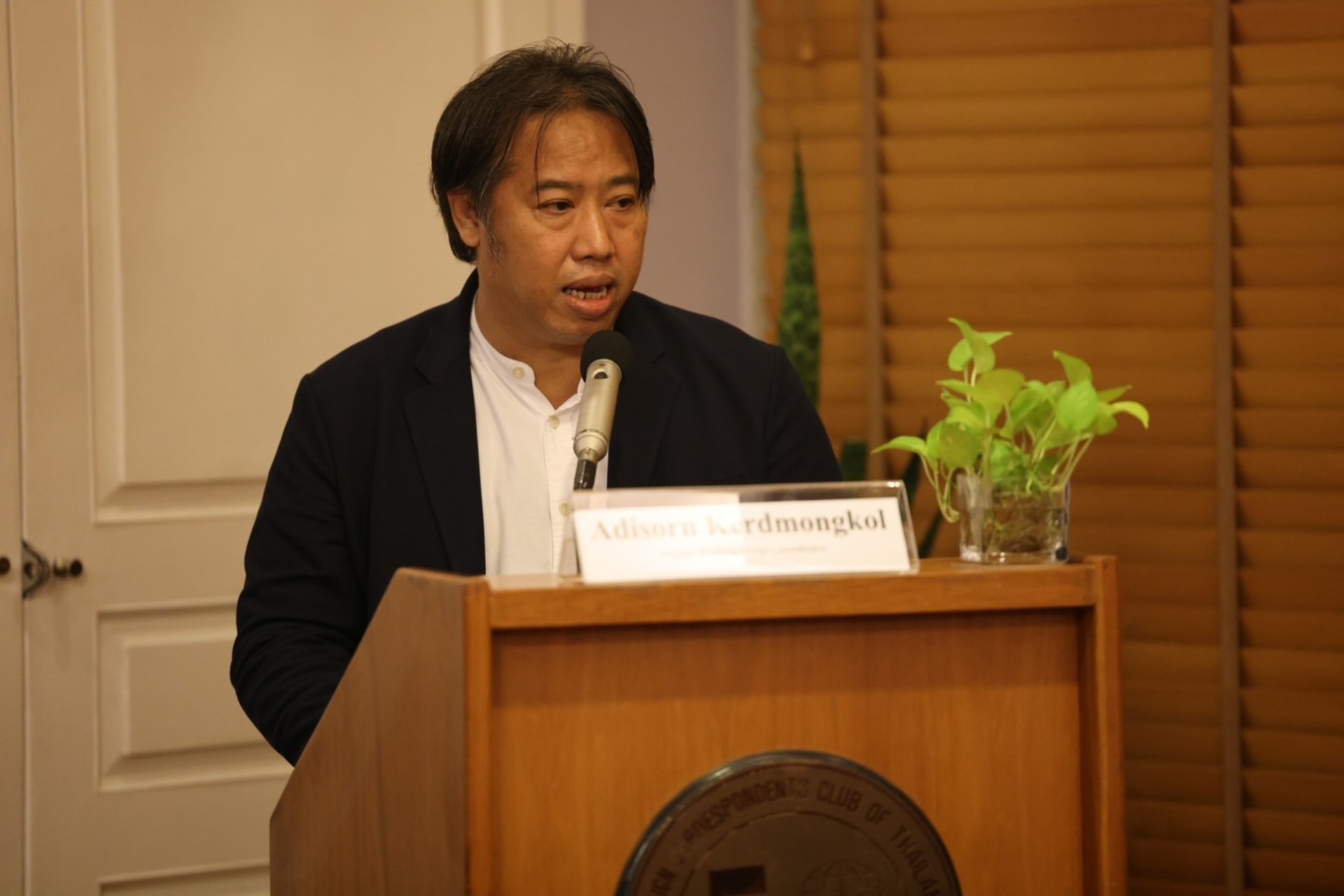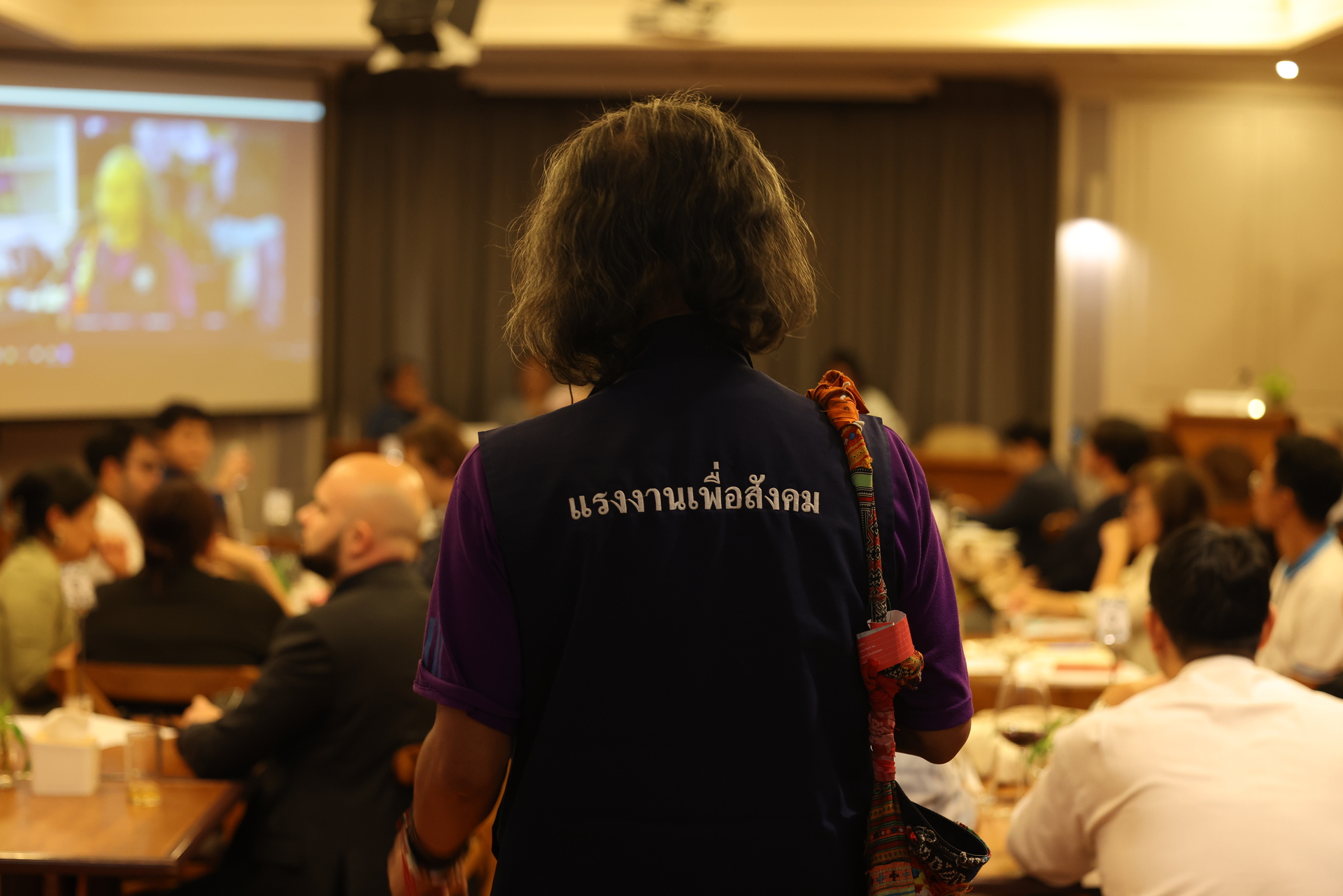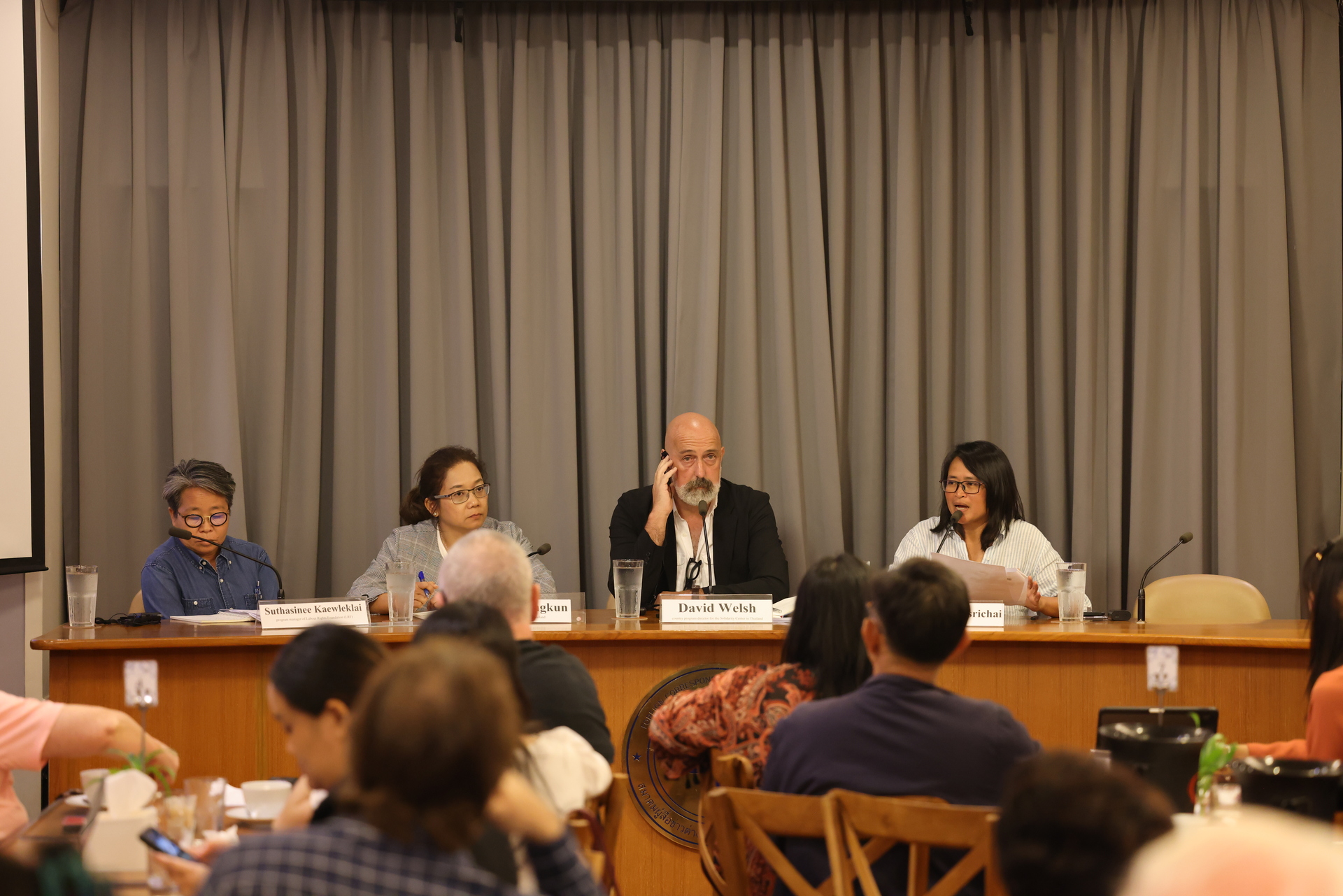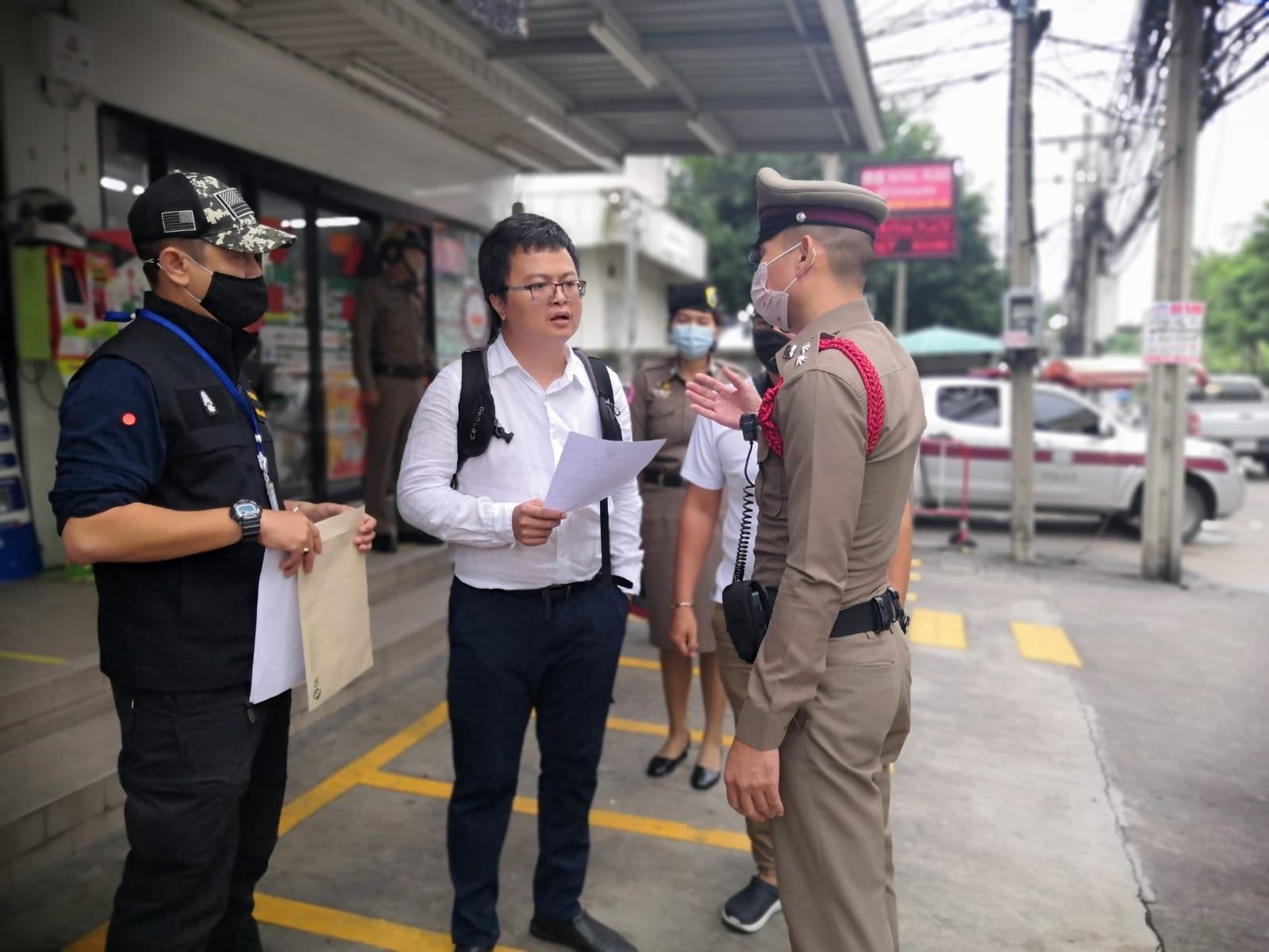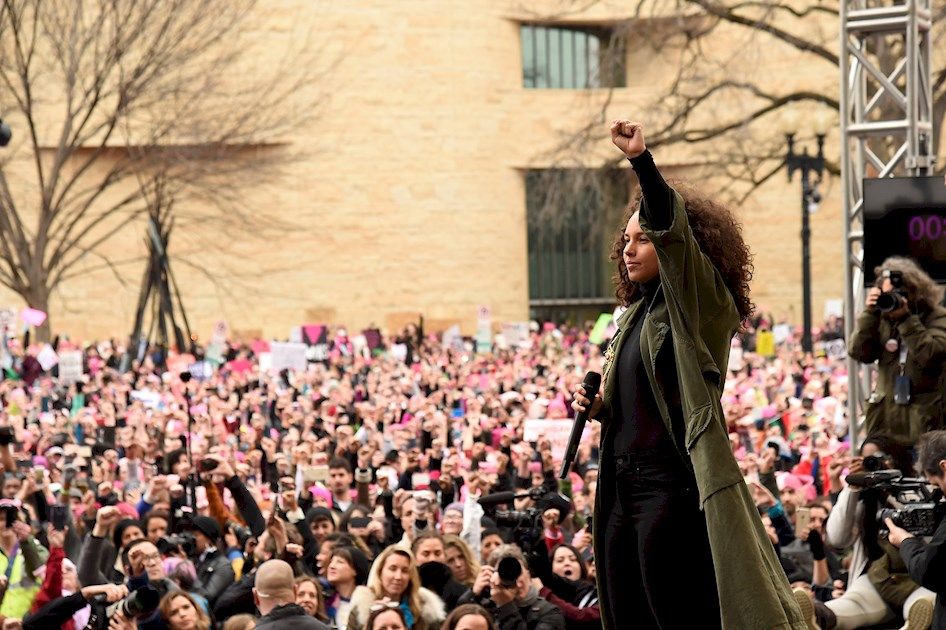The situation of workers and migrant populations: How ready is Thailand for the candidature of the UN Human Rights Council (HRC)?
4 March 2024
Amnesty International Thailand
On 21 September 2023, at the Ministry of Foreign Affairs, led by Deputy Prime Minister and Minister for Foreign Affairs Parnpree Bahiddha-Nukara, it was announced that Thailand would contest in the election of a member of the UN Human Rights Council or HRC for the term of 2025 – 2027, the election of which would take place in this October. It was yet again another pledge made by the Thai government on the issue as in 2022, the Ministry of Foreign Affairs has sent a letter to inform the Secretary General of the Cabinet about the attempt to contest for the membership of the UN Human Rights Council, and a resolution was passed to acknowledged this.
But while the government was so committed to this task, media reports have otherwise often shown how human rights issues have been left unresolved in the country. This ranges from the arrests and imprisonments of political dissents, labour rights issues and issues concerning refugees, many of whom have been deported to face persecution in their countries or origin. Meanwhile, Thai people living in exile have been subject to enforced disappearances while living in our neighboring countries. Given the contradiction between the aspiration and the reality, how ready is Thailand to contest for the membership of the UN Human Rights Council?
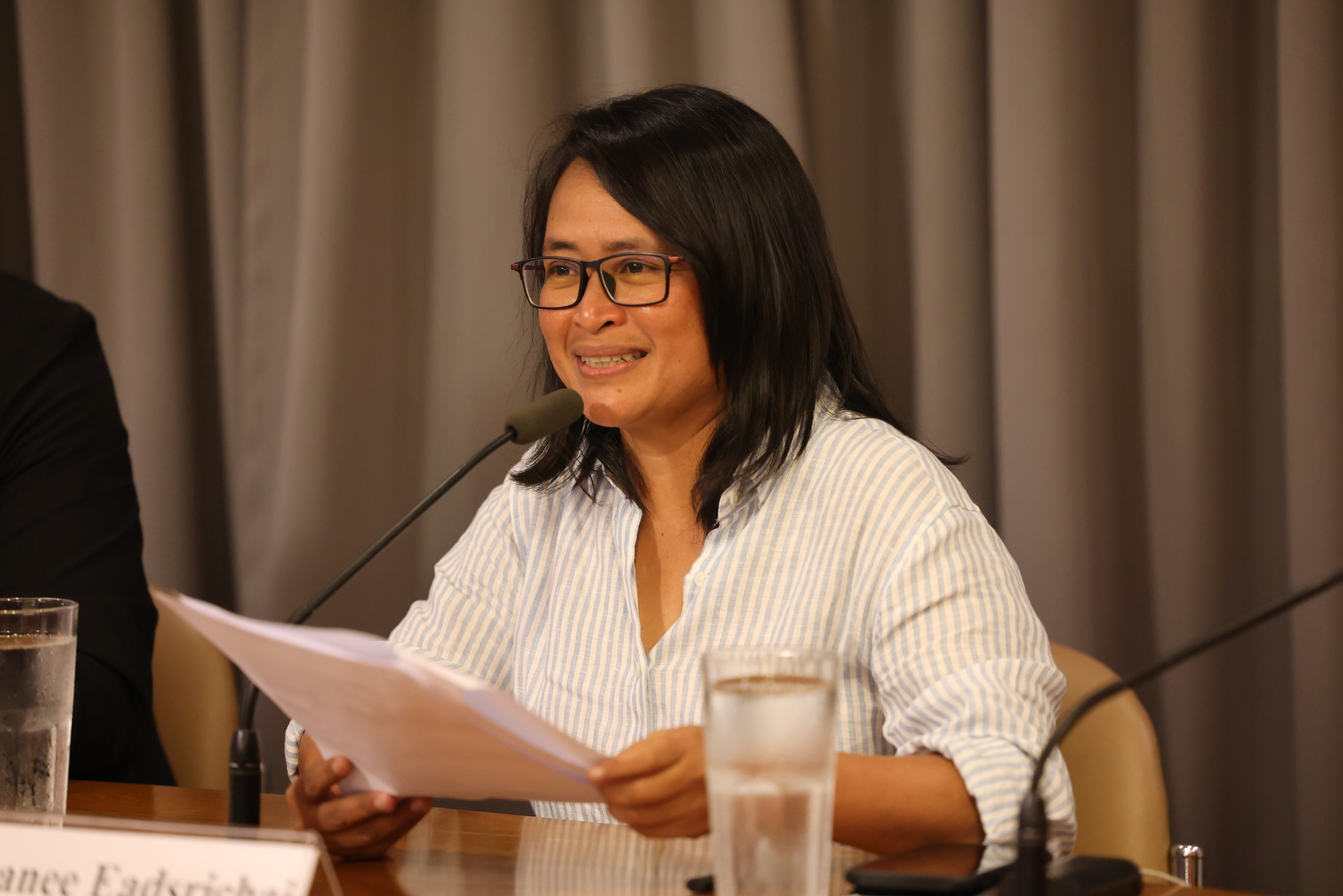
During the panel discussion “Thailand’s candidature for the UN Human Rights Council (HRC): From the viewpoints of the state of labour and migrant protection” organized by the Migrant Working Group (MWG), the Human Rights and Development Foundation (HRDF), the Solidarity Center in Thailand, the Environmental Justice Foundation (EJF), and Amnesty International Thailand, an analysis was made on the readiness of the Thai government and to offer recommendations on human rights for the government to consider taking action on.
The overall picture of the state of the rights of refugees, stateless persons, workers and migrant workers
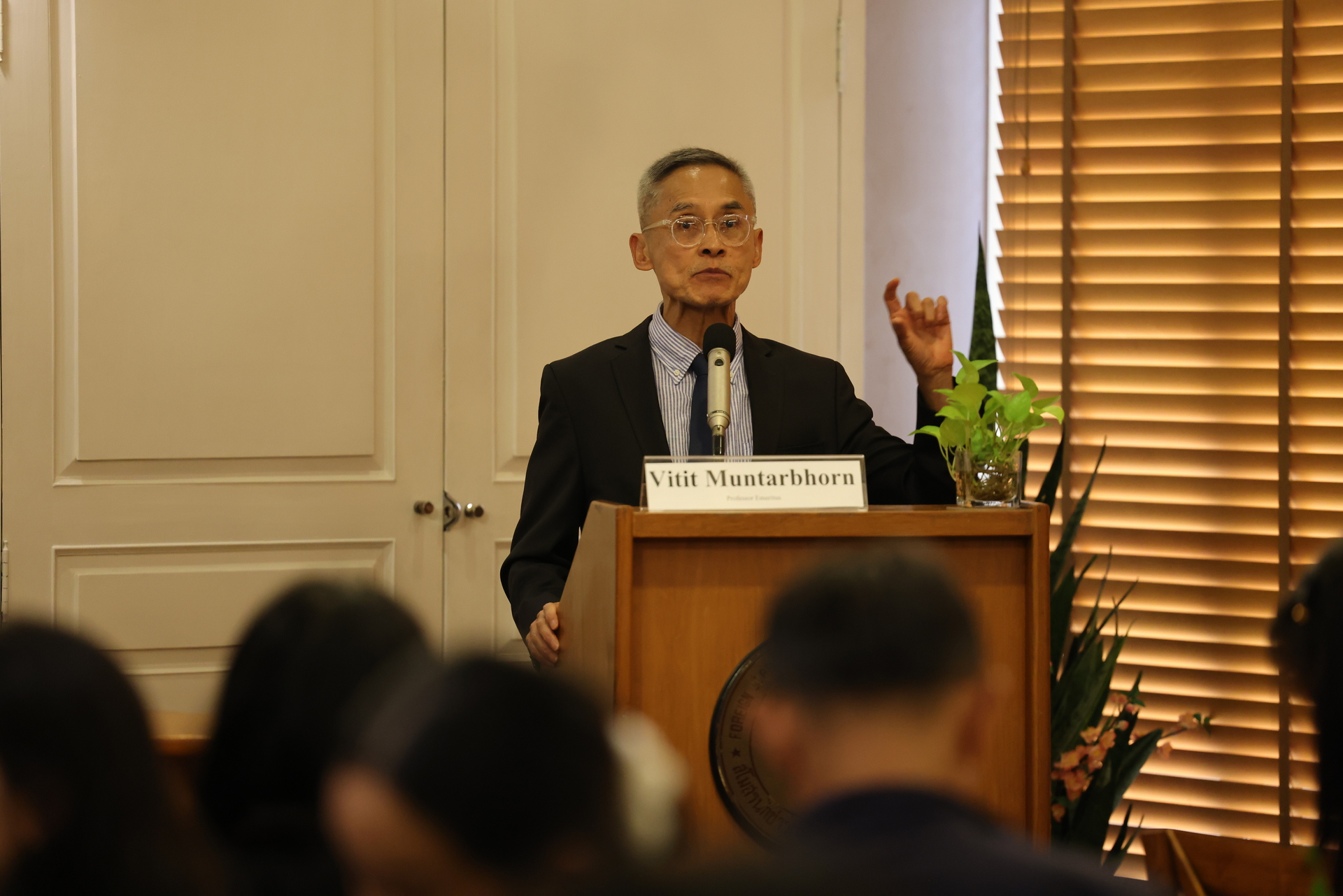
In his keynote speech, Professor Emeritus Vitit Muntarbhorn sheds light on the situation of human rights in Thailand through the four groups of workers and migrant populations including refugees, stateless/nationality-less persons, workers and migrant workers vis-à-vis the three issues including international law, domestic laws, policies and practices, and challenges and the paths forward.
Refugees
For refugees which mean persons who have fled from persecution and/or armed conflict to Thailand, Professor Emeritus Vitit said that at present, Thailand is not a state party to the U.N. Convention on the Status of Refugees, although it has acceded to seven of the nine core human rights treaties, part of which may apply to refugees. For example, Article 13 of the International Covenant on Civil and Political Rights (ICCPR), prohibits the arbitrary expulsion of a foreign from the country including also asylum seekers. Thailand has also made pledges during their attendance to international conferences including the right pledges such as to develop the screening mechanisms for asylum seekers.
Nonetheless, a major impediment to the rights of refugees is the enforcement of the immigration law on refugees. According to Professor Emeritus Vitit, in general, the immigration law must assume that the such asylum seekers have not received protection from their countries of origin, as a result of which, they have to come here and therefore such immigration law should not be applied to them.
In addition, Thailand has enacted the Act on Prevention and Suppression of Torture and Enforced Disappearance and its Section 13 prescribes against the deportation of a person to face a deadly persecution, and this law must be effectively put in place.
Here are the challenges and the paths forward to promote human rights of the refugees;
- For the existing people from Myanmar, about 90,000 of them, who have been living in temporary shelters, they should receive support to further their education, to receive educational certification, and to be given a chance to engage in jobs to minimize corruption and to supply quality labour to Thailand.
- The newly arrived people from Myanmar who have come here following the coup in Myanmar, Professor Emeritus Vitit proposes that they should be allowed to stay here temporarily and not be deported to their country of origin as well as to have their basic rights respects including their right to food, water and education, etc.
- The people of Cambodia should be allowed to stay here temporarily and not be deported to their country of origin and should have their basic rights and freedoms respects since there have been reports some Cambodians who lived here had been repatriated to face imprisonment in their country. This is what we call refoulement to face danger.
- Urban refugees from various nationalities should be allowed to stay temporarily. Nonetheless, since the government has developed the screening mechanism, it should apply to them.
The stateless and nationality-less persons
Thailand is not a state party to the 1954 Convention relating to the Status of Stateless Persons and the 1961 Convention on the Reduction of Statelessness, although it has acceded to seven of the nine core human rights conventions which are probably helpful including on non-discrimination in education and birth registration.
As to the paths forward, Professor Emeritus Vitit proposes that;
- All children born without a nationality in Thailand should afford Thai nationality.
- For children born outside Thailand, they should be given temporary right to residency and allowed to engage in work and no immigration law should be applied to them.
- The ethnic populations should afford Thai nationality.
Workers
As to the workers, Thailand is a state party to nearly 20 of 190 conventions of the International Labour Organization (ILO) including the ones concerning fundamental issues such as prohibition of forced labour, equal pay, non-discrimination in workplace, protection of child labour, and the eradication of the use of child labour. As to the conventions we are not a state party to, they concern freedom of association, unionization and collective bargaining, or the ILO Conventions no. 87 and 98.
As to the recommendations, Professor Emeritus Vitit said that labour rights protection should also apply to workers employed in informal economy or those who sill miss out on the protection including works in agricultural sector and platform workers. The latter should afford certain rights concerning their pay or their days-off, and their right to organize.
Migrant workers
As to the migrant workers, Thailand is neither a state party to concerned UN Conventions nor the ILO Conventions. Nonetheless, MOUs have been made with neighboring countries to regulate the migration of migrant workers from there. On this issue, Professor Emeritus Vitit said that an effort should be made to facilitate the implementation of various processes including;
- Streamlining regulations and frees since the current bureaucratic process has slowed down the process
- Both documented and undocumented workers should be protected from exploitation. The issue of legal or illegal migration should be separated from their basic rights.
- Facilitate the making of MOUs, particularly in view of the acute shortage of labour in Thailand
In sum, what the four groups, the refugees, the stateless persons, the workers and the migrant workers have in common include;
1. International standards, particularly key international treaties and our pledges to expand our accession to treaties as we should make ourselves more transparent.
2. The enforcement of law and the adoption of good laws and policies including criminal laws which apply to workers and the immigration law
3. Cooperation among Ministries
4. Participation of NGOs and other sectors in the inspection and demands
5. Participation of other groups including the asylum seekers, the stateless and nationality-less persons, workers and migrant workers since we try to ensure the optic that they are the holders of the rights in pursuit of happiness and are not just an object as viewed by some public sectors that they are vulnerable to exploitation and harm.
The situation and challenges concerning migrant workers in Thailand
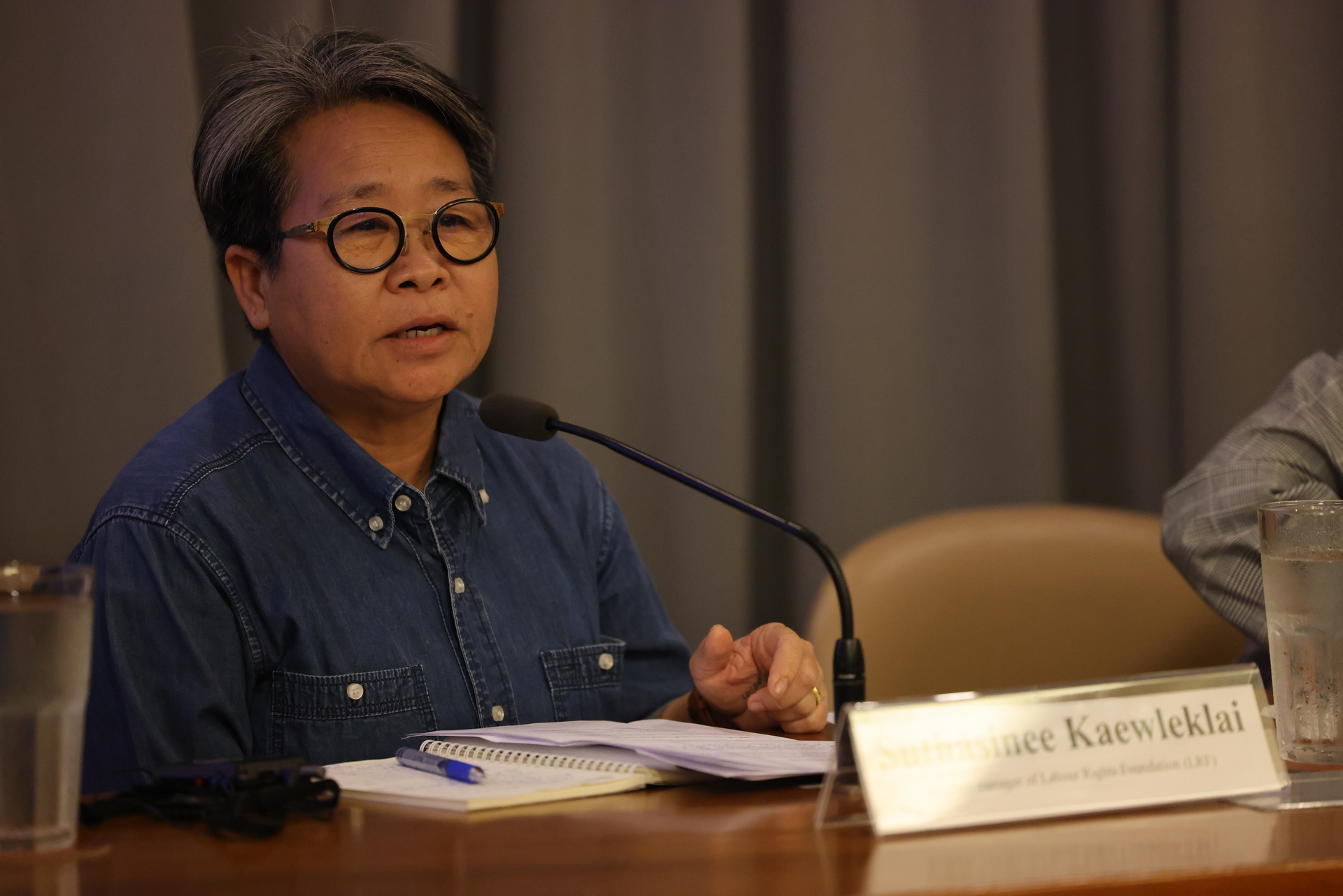
Suthasinee Kaewleklai, Coordinator of Migrant Worker Rights Network (MWRN), sheds light on the current situation of migrant workers in Thailand that the political situation has immensely impacted their migration to Thailand, particularly those who came through natural routes and became undocumented persons being detained at the Immigration Detention Centers or being deported after serving the 48 days of jail term and being blacklisted and barred from making a reentry.
In addition, there are workers who have been lured to come through MOUs, but beyond the quota. For example, the quota allows the import of 70 workers, but in reality, more than 100 people have been brought in making the people in excess to land no jobs. Many have fallen victim to the brokers, the number of whom has soared making the workers to lose a lot of money.
Amidst the influx of workers through the border given political violence in neighboring countries, particularly Myanmar, Thailand simply ignore human rights of these people and continues to apply the immigration law relentlessly treating them as illegal migrants.
“The state lacks humanity and fails to protect and care for people” said Suthasinee.
As to workers in Thailand, they continue to experience the unfair pay. According to Suthasinee, despite the minimum wage, the workers continue to receive lower pay than the minimum wage. Meanwhile, the authorities do not care about doing the inspection.
“How could it be that the payment is made every three days at around 100 baht? How could the workers survive with such pay? This is extremely horrible. In my opinion, the state does not care about making an inspection. How can the workers seek their legal recourse? They do not differentiate. For the state, if the workers are here undocumented, they shall be deprived of any rights, including the right to health, which they cannot afford” explained Suthasinee.
Therefore, to assess the chance that the Thai government could be elected as a member of the UN Human Rights Council, Suthasinee said that “I give them no score” given their treatment of migrant workers, particularly the restriction on their right to organize, their right to collective bargaining, which are not available to the migrant workers.
“If you have a seat in an international body, the HR Council, how could you make your assessment with international community? You can’t even make good at home; how could you care for the international treaties?” said Suthasinee.
Nonetheless, if the Thai government is actually elected as a member of the UN Human Rights Council, Suthasinee said that it should address all the problems it has never done including those concerning international standards such as the upholding of the right to organize among the workers, the ratification of the ILO Conventions no. 87 and 98 since regardless if they are Thai or foreign workers, they still face difficulties forming their own trade unions. They continue facing an intimidation including be laid off.
In addition, the government must carry out legal reform to ensure legal compliance with the current situation, for example, the labour relations law and other labour protection laws, and expand the applicability of the labour protection law to fisher folk, workers in agricultural sector, etc.
“If you really want to be (a member of the UN Human Rights Council), it is incumbent on you to respect the rights of small people including the Thai workers in Israel. There are more than 100 other countries, and given the outbreak of the war in Israel, they are still keen on sending Thai workers there. They simply said the workers should go to green zones (in Israel). And when we ask them, do you know about the orange, green, and red zones and where they are located in Israel? They said no. Do you know how many people have come here beyond the MOU’s quota? They don’t know. Our people are weeping and wailing worrying if their children have already been killed, or held hostage. The government still made a press conference saying they had no figure of the mortalities. If they really want to get elected, they must be aware of the grievances of the workers, of the small people” said Suthasinee.
Thai labour from international perspectives
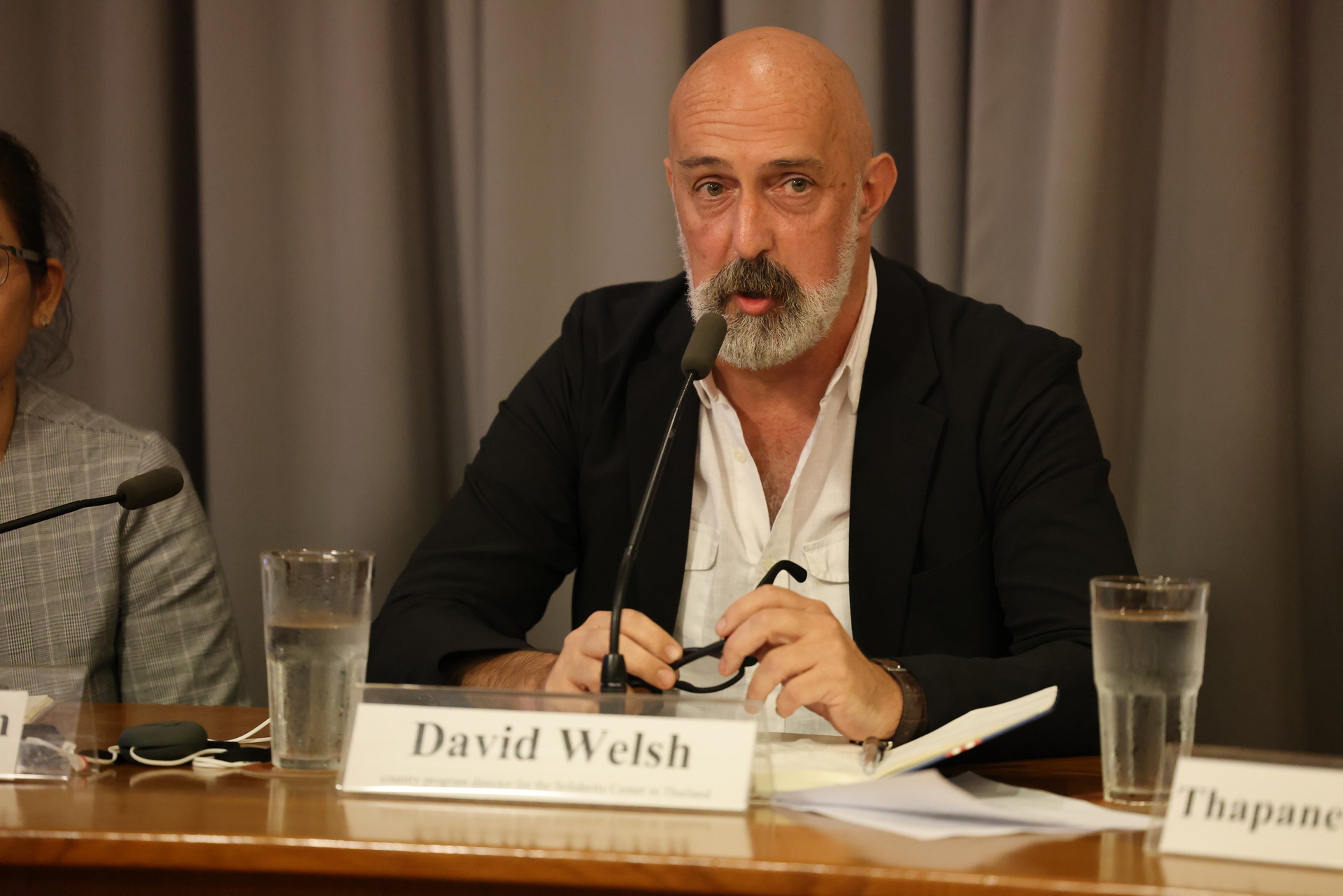
David Welsh, Country Director for the Solidarity Center in Thailand, shed light on the overall issues that affect the efforts to unionize workers in Thailand, both migrant and Thai, as well as the international perspectives on the issues of trafficking in persons, forced labour , supply chain accountability and related challenges facing the most vulnerable in the Thai economy. According to Welsh, virtually all migrant workers in Thailand belong to the informal economy and they are essentially universally deprived of their right to organize. Key obstacles to stifle such rights and freedoms do not come from corporations only, Thai or multinational, though Welsh asserted they are the chief beneficiaries of this ‘race to the bottom’, but are the result of deliberate policy choices by the Government of Thailand. He pointed however to the trend over the past year and a half where important victories for workers in Thailand have shed a prominent national and international light on their plight.
“Following 13 years of continuous civil and criminal law harassment the overall and most senior leader of the Thai trade union movement saw the culmination of his case -the SRUT 13 case- following a successful international campaign involving civil society , the domestic and international trade union community as well as the diplomatic and trade community focusing on the consequences to the Thai Government should they follow through with their intent to imprison this worker leader for simply conducting himself as a trade unionist. It is difficult to point to any other global situation where the overall leader of a union movement has been the victim of such a sustained campaign in such a transparent manner. The freezing effect such efforts have on the overall union movement are significant in that it relays to new and prospective more junior trade unionists that this is what we can do the most senior figure, imagine what we can do to you. Reversing this attempt has had a significant motivating impact on the union movement as a whole.“
Similarly, Welsh noted that the 2022 Brilliant Alliance Thailand case which resulted in a US multinational paying over 1000 Thai workers close to 10 million USD in wages owed represented the single largest settlement in the history of the global garment industry. This was momentous and has led to a variety of other similar multinational supply chain cases currently underway in a variety of industries. Welsh noted though that in all of these cases, what is being done to resolve them is a form of international campaigning and leveraging. The reason for this is that there is currently no system for binding international settlements in the employer/MNC -worker/trade unionist context for labor rights abuses; that Thai labor law is both too weak and the Thai labor court system is either allowed or allows pro union, pro worker decisions to be ignored with impunity.
Labour and trade union laws are meant to expand and protect Freedom of Association. The existing labour laws in Thailand have the opposite effect since their provisions make it very difficult for workers to unionize, make it easy to disband a labour union and systematically and deliberately denies the right to unionization among informal and migrant workers, namely those who need the benefits of unionization and collective bargaining the most. Multinationals, Thai companies and the Thai government are the chief beneficiaries of this system.
Therefore, according to Welsh, pressure must be brought to advocate for the reform of labour laws and respect for workers’ rights and freedoms regardless of the sector they are employed in or their nationality. Moreover, formal mechanisms to hold multinationals to account are desperately needed. The plan which the RTG has put forward to the UN in terms of labor and worker commitments may be enough to secure a seat on the Human Rights Council, but is nowhere near enough to actually benefit workers- Thai, migrant or informal, or Thai trade unions.
“All workers, Thai or migrant workers, regardless of which sector they belong to, should be entitled to the right to organize and the right to collective bargaining. All workers should be able to hold to account not only their direct employers, but also every party involved in the supply chain. This is the direction international law is going in. Moreover, Thailand is not only qualified to take such leadership; it is also ideally located as a supply chain and migrant worker hub across any number of industries to lead the effort to impose binding accountability and financial penalties for labor rights abuses throughout the supply chain. It should also take the lead to expand the scope of freedom of association and labour rights domestically as well. This is our request to the Government of Thailand and we look forward to working with the government and trade unions on these crucial issues” said Welsh.
The situation and problems of migrants and asylum seekers
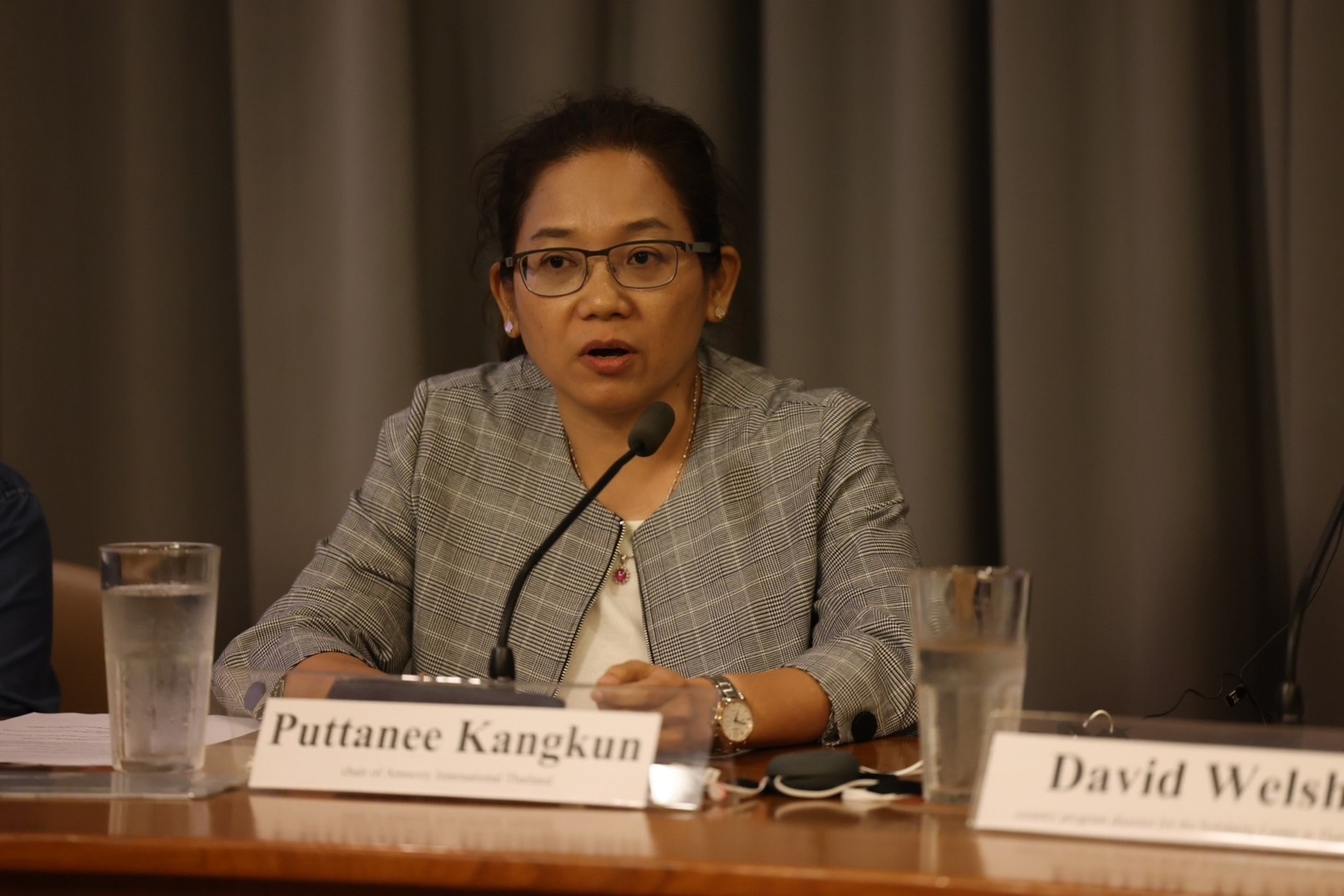
As to the situation of asylum seekers which are a key human rights concern, Puttanee Kangkun, Chair of Amnesty International Thailand said that she seconds the ides to apply as a member of the UN Human Rights Council since this issue can help to galvanize civil society organizations to focus on holding the Thai government accountable on human rights.
Puttanee said that until now, Thailand has tried its best to seek collaboration with international organizations or international mechanisms including the Global Compact on Migration, the Universal Periodic Review (UPR), and the assessment of human rights situation. It has also made pledges to address the issue of refugees. Meanwhile, the National Screening Mechanism has been legalized by the Regulation of the Office of the Prime Minister on the screening and protection of asylum seekers, which constitutes their effort to address the issue of refugees.
As to what the government must do, once it becomes a member of the UN Human Rights Council, this may include the accession to the U.N. Convention on the Status of Refugees, the withdrawal of its reservation on Article 22 of the Convention on the Rights of the Child as Thailand is the only country in the world to make such reservation. As to the human rights situation in Myanmar and its ramification on Thailand, according to Puttanee, humanitarian assistance alone might not be enough, and she offers other recommendations including;
1. Thailand must consider collaborating with ASEAN to impose an arms embargo on Myanmar since it has been reported that most of the weapons used in armed conflicts in Myanmar come from ASEAN countries. This issue is very critical given the ongoing violence.
2. The government must recognize the importance of political representatives apart from those from the Myanmar military regime. This includes the NUG, the government in exile, and other stakeholders who still have political power in Myanmar.
3. The Thai government should accede to the Rome Statute to recognize the role of the International Criminal Court and to be able to refer the case of crime against humanity in Myanmar to the ICC’s prosecutor.
4. Thailand should invite the United Nations Special Rapporteur on Human Rights in Myanmar to visit Thailand officials to show our support for democratization.
The situation of irregular migration and a membership of UN Human Rights Council
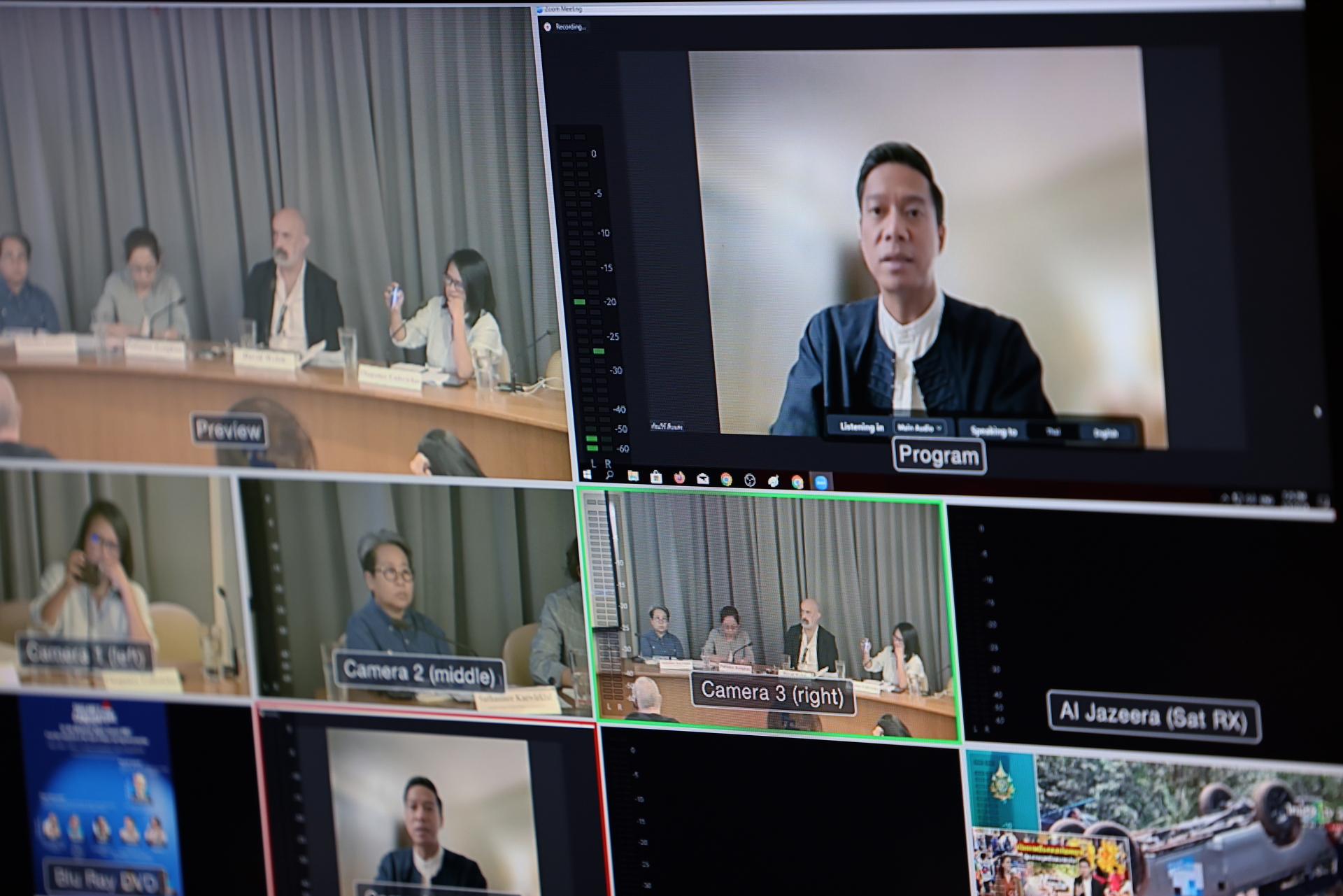
Kanawee Suebsaeng, Chair of the Subcommittee to explore the possibilities to address the situation of irregular migration on a sustainable basis, as a representative from political sector, said that the establishment of the Subcommittee to explore the possibilities to address the situation of irregular migration has nothing to do with the application as a member of the UN Human Rights Council this year. The House Committee on Legal Affairs, Justice, and Human Rights, however, wants to see a shift of paradigm on key human rights issues.
According to the Subcommittee to explore the possibilities to address the situation of irregular migration on a sustainable basis, the irregular migrants can be divided into three groups including refugees, migrant workers, and stateless and nationality-less persons, which has not been well recognized by Thailand, particularly the legislative branch.
“We have many laws concerning migrant workers and refugees, as well as stateless and nationality-less persons. The problem is we put everyone of them in the same basket. We do not seek to understand the reasons that give rise to such irregular migration; They do have different reasons. As a result, we only apply the same law universally, the Immigration Act. Anyone who came in illegally, we put them into this basket. And we only focus on enforcing the law without taking into account the context, without realizing that refugees do exist in Thailand, and migrant workers do exist in Thailand, and there are stateless and nationality-less persons who live here. They all need to have access to various basic rights and welfares, just like other human beings who have Thai nationality” said Kanawee of the situation of legal enforcement and the irregular migration.
As to the issue of a membership in the UN Human Rights Council, according to Kanawee, there are many issues that prompt people to cast their doubt on the possibility that Thailand will become a member of the UN Human Rights Council. This includes the issues of Uygur and Rohingya refugees who have been “indefinitely detained” in the Immigration Detention Centers for more than a decade, or the arrests of political activists from Cambodia just before the visit of the Cambodian Prime Minister to Thailand, which reflected transnational repression. Activists from Lao PDR have also died in Thailand and there is also the case of Wanchalearm Satsaksit, a Thai political activist, who was a victim of enforced disappearance while exiling in Cambodia and there is still no answer to the case.
“All these will become key factors that influence the decisions whether or not the UN Human Rights Council would accept Thailand as its member” said Kanawee.
As to the issue of Humanitarian Corridor, initiated by the government, according to Kanawee, this should reflect a good will of the government, although “a good will may not always translate into an action.”
“First, you must understand the meaning of humanitarianism. First, you must understand the situation in the country or in the area to which you want to offer your assistance. Humanitarian aid is a sensitive issue. In Myanmar, the area that borders Thailand is sensitive. The area is subject to the maintenance and control of three types; the areas controlled by the Myanmar military and the ethnic armed groups, and the Mixed Control Area. Therefore, as the government said they want to open up an area of humanitarian aid without understanding what constitutes humanitarianism. They have no idea who they should deal with. And when the Thai government announced that the coordination will be made through the Myanmar Red Cross Society, they probably did not understand that the Myanmar Red Cross Society is affiliated with the Myanmar military.”
“To provide humanitarian aid, one cannot discriminate. We need to work impartially and neutrally. The Thai government said we could just begin with something, and talks have been held with the Myanmar military on the G2G basis. And they hope they will be able to talk with the ethnic armed groups later. I think it is wrong. And this is not practical. It will give rise to partiality and a lack of neutrality. And in the future, this will make parties shut their door to humanitarian assistance work.”
“Right now, the Thai government opts to coordinate exclusively through the Myanmar Red Cross Society. In my opinion, this approach will undo your effort to establish the area to deliver humanitarian aid. I only want to plead to the Thai government to make a more well-rounded decision and they should try to understand the real meaning of humanitarianism” said Kanawee.
According to Kanawee, humanitarian assistance is not just a one-off help. The work has to be done on a sustainable basis.
“It is necessary for the Thai government to explore more things in detail and to first wrap their head around the meaning of humanitarian assistance. Therefore, the solutions for the issues of refugees appear to be far-fetched for the government.”
“For the legislative branch, under the House Committee, this subcommittee has been established to explore the sustainable solutions based on humanitarian and human rights principles. These are just my recommendations. I hope the government as the administration will apply them to care for the refugees and to ensure the existence of humanitarian corridor that we all have been advocating for” said Kanawee in the end.
In addition, the Migrant Working Group (MWG) and its allied organizations of migrant workers and human rights have the following recommendations and demands for the Thai government to develop measures for to protect and defend human rights, particularly of the migrant workers and refugees;
1. The Thai government should consider to sign international treaties concerning migrant workers and refugees including the International Convention on the Protection of the Rights of All Migrant Workers and Members of Their Families (ICRMW), and the term “more studies are needed” is no longer needed since many studies have been done on the matter.
The accession to the International Convention on the Protection of the Rights of All Migrant Workers and Members of Their Families (ICRMW) and the ratification of the International Labour Organization (ILO) Conventions No. 87 on Freedom of Association and the Right to Organize, 1948, and no. 98 on the Right to Organize and Collective Bargaining shall ensure and set the framework for legal development to uphold and protect human rights of the migrant workers and refugees.
2. Thailand should develop a strategic plan for the management of migrant workers that applies to the protection of migrant workers. Such strategic plan should fall under the direct purview of the Ministry of Labour to issue a domestic law. And the law has been enacted since 2017, but in the past six years, Thailand has never developed such strategic plan as a result of which the protection, recognition and solutions of the problems of migrant workers are yet to be realized.
3. Thailand should review the implementation of the screening mechanism with persons who are unable to return to their countries of origin since we have found many refugees who have applied for protection through the mechanism, but they are still charged under the immigration law and need to be bailed out to go through the process. This has led to the double violations of their human rights. In addition, a national strategic plan should be developed to systematically manage and determine statuses of refugees and asylum seekers.
4. Thailand should implement a screening mechanism before deporting asylum seekers to face a risk to their life and persecution to ensure no refugees and asylum seekers are repatriated to face persecution. At present, even the Immigration Bureau cannot say if they have to take this into account. There is no clear mechanism in this regard to ensure that the refugees and asylum seekers shall not be subject to refoulement to face such persecution.
This can help to build up assurance and trust within international community that Thailand is sincere and committed to protecting human rights of all groups and to ensure the protection human rights of migrant workers, refugees, asylum seekers and other people in Thailand and to ensure Thailand can proudly sit as member of the UN Human Rights Council.
